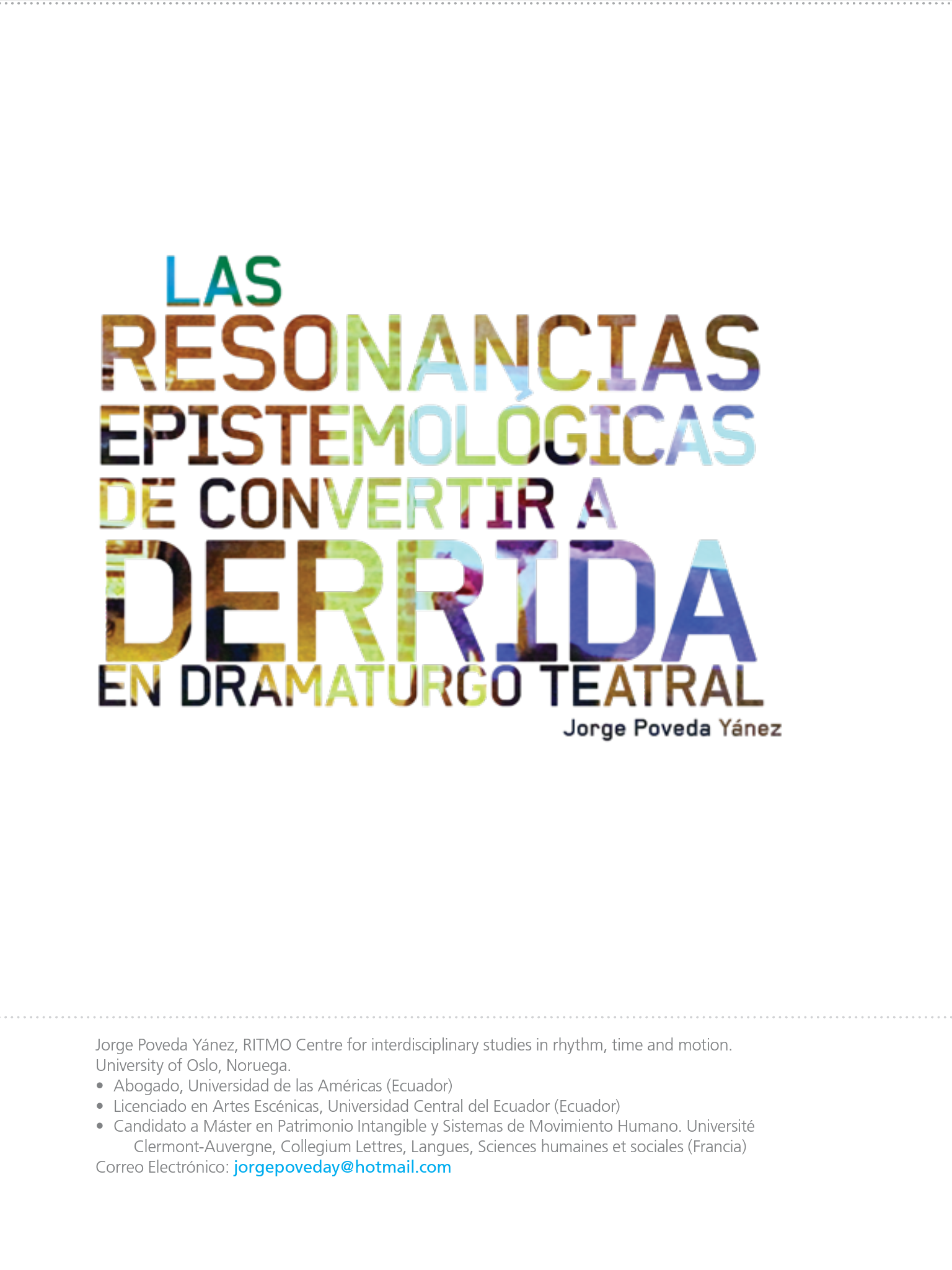The epistemological resonances of turning Derrida into a theatrical playwright

Published 2019-12-05
Keywords
- performance,
- theater,
- dramaturgy,
- philosophy
How to Cite
Copyright (c) 2019 Jorge Poveda

This work is licensed under a Creative Commons Attribution-NonCommercial 4.0 International License.
Abstract
Recovering the experience from the theatrical performance Higiene, I will try to focus on the aesthetic accomplishments generated not isolated by themselves but intertwined as a counterpart to the cognitive effort done by the authors of the play to try to grasp on three fundamental concepts of Jacques Derrida"™s philosophy; parergonality, decentralization and deconstruction were boiled down until they revealed their dramaturgical possibilities, as creative triggers for a theatrical performance that could defy the idea of thought as an exclusive faculty of the mind, instead, "Higiene" brings light on the actions of the body as procedures that convey and produce knowledge, in the context of theatrical representations.
Downloads
References
- Arnheim, R. (1985). Pensamiento visual. Buenos Aires: Paidós.
- Derrida, J. (1968, 3 de septiembre). La Différance. Bulletin de la Société française de philosophie. 62(3). 45-99
- Lehman, H. (1999). Teatro posdramático. Frankfurt: Cendeac.
- Lévi-Strauss, C. (1988). El pensamiento salvaje. México DF: Fondo de Cultura Económica.
- Lotman, I. (1996). La semiósfera. Madrid: Cátedra.
- McAuley, G. (2000). Space in Performance: Making Meaning in The Theatre. Michigan: University of Michigan Press.
- Munari, B. (2016). Diseño y comunicación visual. Barcelona: Gustavo Gili.
- Sirlin, E. (2006). La luz en el teatro. Manual de iluminación. Buenos Aires: Atuel.
